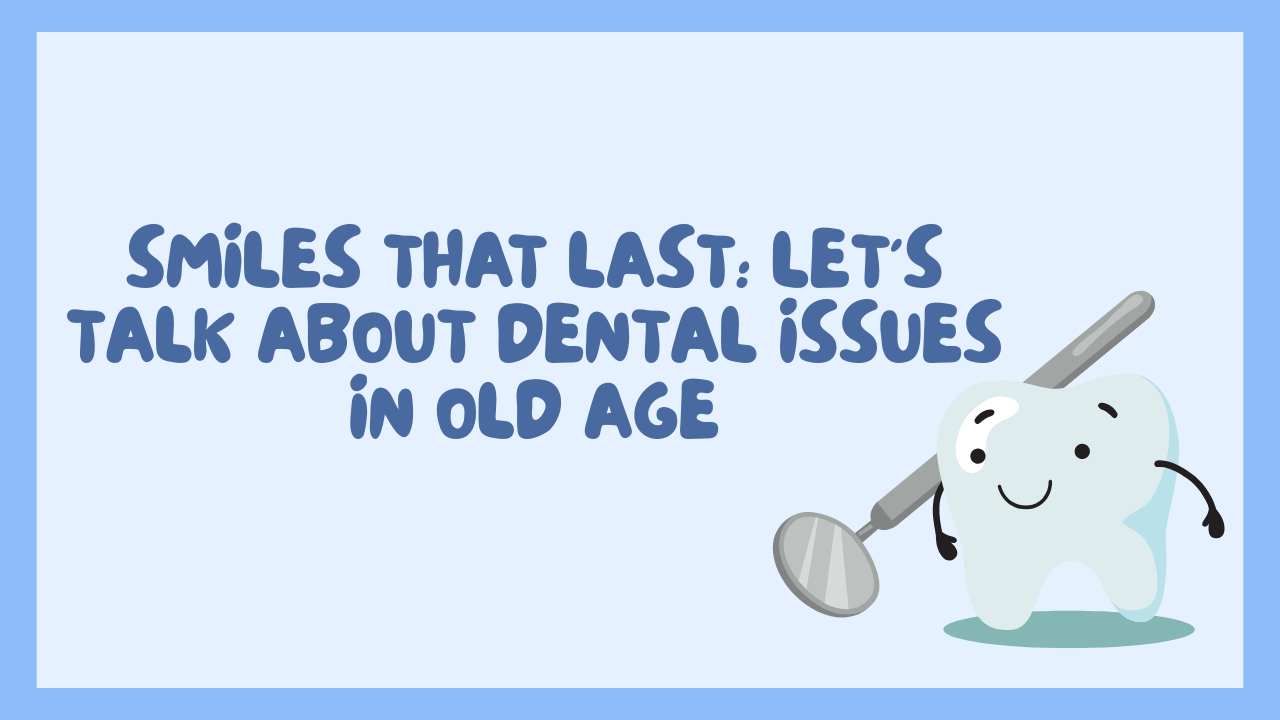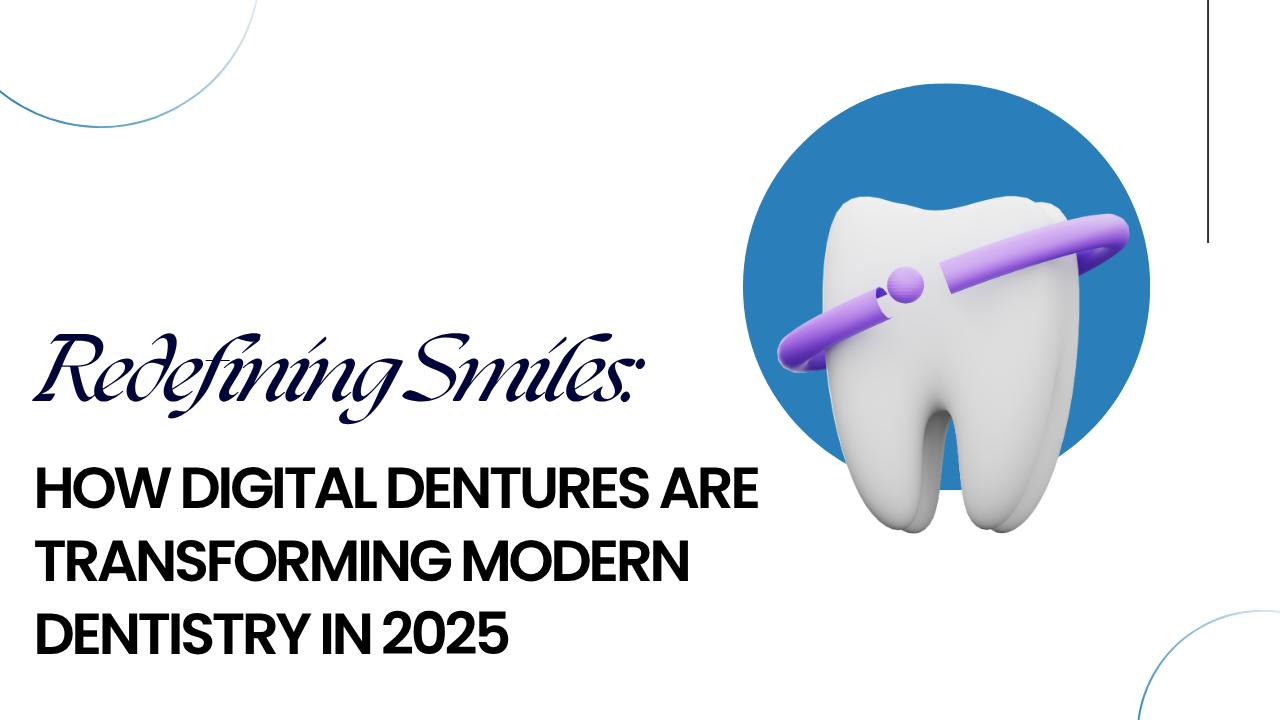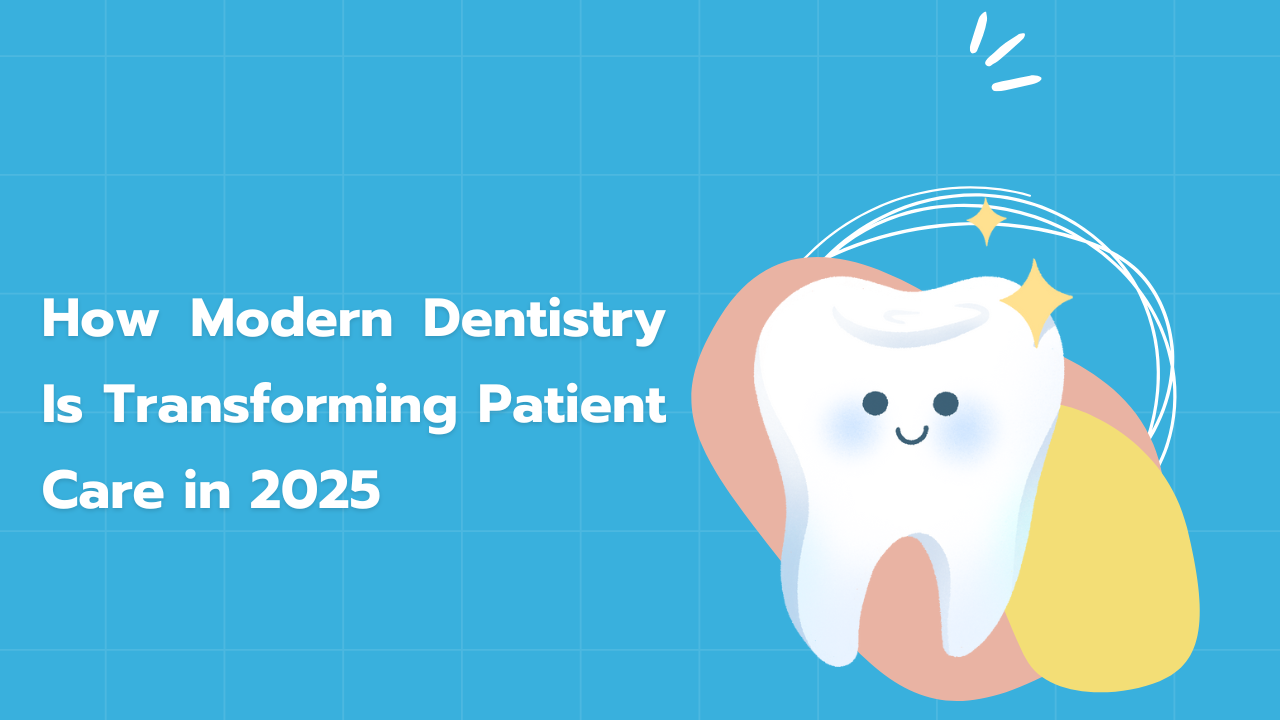Have you ever realized how much a smile reveals about a person? It can brighten a room, ease a serious discussion, or simply create a sense of connection. Here’s the thing—our smile is a precious asset that stays with us throughout life, but it requires attention, especially as we get older.
When we think about aging, we usually focus on joints, vision, or memory. However, dental health in later years is just as crucial and often overlooked. Let’s explore this together. I’ll explain the common dental challenges seniors face, why they occur, and most importantly, how we can maintain strong, healthy smiles at any age.
Why Dental Health Should Be a Priority in Aging
Consider this: we use our teeth and gums every day—to chew, talk, laugh, and even kiss loved ones. Oral health isn’t just about teeth; it’s closely linked to overall well-being. For instance, gum disease has been associated with heart disease, diabetes, and even cognitive decline.
So, caring for our mouths means caring for our whole body. That’s why oral health for seniors isn’t just about appearance—it’s vital for healthy aging.
Common Dental Issues That Arise With Age
Now, let’s discuss the problems that often develop as we grow older. You might recognize some of these, but understanding them better can help us stay ahead.
1. Gum Disease – The Quiet Problem
Gums often go unnoticed until issues arise. Over time, plaque accumulates, causing inflammation and bleeding. Early stages may be painless, so many don’t realize there’s a problem until it’s advanced. If untreated, gum disease can result in loose teeth and even bone loss.
2. Tooth Decay and Root Cavities
Cavities aren’t just a childhood issue anymore. As gums recede with age, tooth roots become exposed, and since roots are softer than enamel, seniors are more prone to decay.
3. Dry Mouth (Xerostomia)
A major factor is medication—blood pressure drugs, antidepressants, diabetes treatments—all can reduce saliva production. Without enough saliva, teeth lose their natural defense. Dry mouth isn’t just uncomfortable; it raises the risk of cavities, gum problems, and infections.
4. Tooth Loss
Many seniors retain their natural teeth longer nowadays, which is great. Still, tooth loss can occur, affecting eating, speaking, and facial appearance. It also impacts self-confidence—it’s not something we have to simply accept as part of aging.
5. Dentures and Bridges
Dentures restore function but aren’t always perfect. Poorly fitting dentures can cause sore spots and make eating difficult. Bridges need strong support from neighboring teeth and require ongoing maintenance.
6. Oral Cancer
Although it’s not often discussed, oral cancer is important to be aware of. Older adults face a higher risk, and early detection is crucial. That’s why regular dental check-ups are essential, even if you feel everything is fine.
How Dental Problems Impact Life Beyond the Mouth
I want to emphasize this: dental issues don’t just affect your mouth.
- Difficulty chewing can mean avoiding crunchy apples and fresh vegetables, which may lead to poor nutrition.
- Speech can be impacted—missing teeth or ill-fitting dentures might make you feel self-conscious when talking.
- Confidence can decline, leading to reduced social interactions; seniors might shy away from gatherings or smile less often.
- Overall health can be compromised since gum disease has been linked to serious illnesses like heart disease and dementia.
When we discuss common dental problems in older adults, we’re really addressing their quality of life.
Simple Ways to Maintain a Healthy Smile in Later Years
Now, let’s focus on solutions. The good news is that most dental problems can be prevented or managed.
1. Make Brushing and Flossing Effective
Use a soft-bristled toothbrush or, even better, an electric one to make brushing easier.
Clean between your teeth daily. If flossing is difficult, try interdental brushes or water flossers.
2. Address Dry Mouth Directly
Keep a water bottle nearby and sip water throughout the day.
Chew sugar-free gum to stimulate saliva production.
Avoid alcohol and caffeine as they can worsen dryness.
Consult your dentist about saliva substitutes or special mouth rinses.
3. Eat Foods That Support Your Teeth
Include calcium-rich foods like dairy products, almonds, and leafy greens in your diet.
Vitamin D (from sunlight) helps your body absorb calcium.
Crunchy fruits and vegetables not only provide nutrition but also help clean your teeth naturally.
Limit sugary snacks and sodas.
4. Care for Dentures and Bridges Properly
Clean dentures every day and never wear them while sleeping.
Visit your dentist regularly to ensure they fit well—don’t tolerate discomfort.
If you have a dental bridge, remember that the supporting teeth need extra attention.
5. Keep Up with Regular Dental Visits
It’s tempting to skip appointments if you don’t feel pain, but many dental issues don’t cause discomfort until they’re advanced. Regular check-ups help catch problems early, and many dentists now include oral cancer screenings during routine exams.
Modern Dental Options Seniors Should Know About
Here’s the exciting news: today’s dentistry offers gentler and more effective treatments than ever before.
- Implants provide a long-lasting alternative to dentures, looking and functioning like natural teeth.
- Laser treatments offer a less invasive way to treat gum disease.
- Fluoride varnishes and sealants aren’t just for children—they protect vulnerable areas in seniors, too.
- Cosmetic dentistry is available for those who want not only function but also a confident smile.
Whether it’s prevention or restoration, seniors today have many options to maintain their oral health.
A Quick Comparison: Natural Teeth vs. Dentures
| Aspect | Natural Teeth | Dentures |
| Comfort | Natural feel | May cause sore spots if ill-fitting |
| Chewing ability | Strong, versatile | Limited, especially with hard foods |
| Maintenance | Daily brushing & flossing | Daily cleaning, regular adjustments |
| Longevity | Can last a lifetime with care | Need replacement every 5–7 years |
Another Comparison: Daily Habits That Protect Senior Smiles
| Habit | Why It Matters | How to Do It Well |
| Brushing twice a day | Removes plaque, prevents decay | Use soft/electric brush + fluoride |
| Hydration | Reduces dry mouth and protects enamel | Keep a water bottle handy |
| Regular dental visits | Detects issues early, maintains health | At least 2x a year |
| Nutritious diet | Supports teeth, gums, and bone strength | Calcium + vitamin D + fiber foods |
In Summary
Aging doesn’t mean losing things—it means adapting, safeguarding, and finding new ways to enjoy life. This applies to oral health as well.
While dental problems are common in older adults, they don’t have to diminish comfort or self-assurance. With consistent daily care, thoughtful nutrition, routine dental visits, and advanced treatments, seniors can maintain healthy smiles for many years.
The key point is this: your smile stays with you throughout life. Care for it properly, and it will keep brightening your days, meals, and interactions—regardless of how many birthday candles you have.




